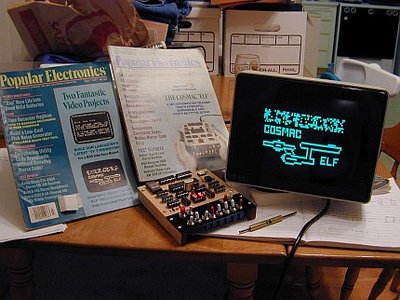Reply 20 of 42, by spiroyster
- Rank
- Oldbie
wrote:The question is why we should want to run mobile software on a desktop computer.
Are you a mac user? An awful lot of mac users are very happy this, just read some of the comments from mac users in regards to Marzipan. They are quite chuffed!.. but yes personally I can't see the point unless there is a killer app that only exists on iOS and could function on a desktop environment.
wrote:Tim Cook has already told us how much of a "compromised" experience touch on the desktop provides, so how will this work exactly?
meh... they will change their minds... https://www.youtube.com/watch?v=qr_KxouI8Zs
wrote:Are any details available? Will iOS software really be running on the Mac, or will there just be some link to an iOS device? Current and legacy software straight from the store, or will they be twisting developers' arms to rebuild their applications to support this?
Well an ARM compatibility layer was discovered in OSX a few years ago now... turns it was probably Marzipan. There was this https://appleinsider.com/articles/12/02/07/ap … _arm_processors, then someone found some leaked code back in 2016 had the start of an ARM compatiblity layer (google-fu needs to be better for this search since querying 'ARM' and 'OSX' or 'macOS' is polluted by all this recent news 😢 ... but trust me the articles are out there), Darwin runs on ARM.... and if you have ever written an iOS program, this needs to be done on an x86 machine, and you use the similator (this has been there since iOS2/3), so there has always been some form of compatibility layer there... although I think in the case of the simulator it's using x86 compiled binaries... but means the iOS environment (or at least majority of it) existed on x86 since pretty much day one.
wrote:You do realise that we've been hearing the same story for over twenty years, right? In recent memory, first it was Java with "write once, run anywhere" and "the network is the computer". Then, some claimed that .NET would finally usher in that era, and more such predictions were made repeatedly.
Every closed source program is "Write once, run anywhere" surely? The user isn't required to write their own program each time o.0
.NET is a runtime library.... nothing to do with SaaS or cloud based computing (not including any cloud/network services in the .NET framework of course). Despite the name its not anything to do with the 'net' directly.
wrote:We're getting a little closer now, but we're still waiting, and given poor availability of high-speed Internet service and ridiculous overage charges for data usage on home and mobile connections in a number of countries, I doubt we're quite ready for that yet.
There is a fundamental difference between then and now... namely the coupling of the OS to said functionality and services... back then an OS wasn't always expected to go online and they were written to these requirements (can be entirely self-contained) ... these days it's a given. Back then you needed to run it through a browser (not natively in the OS environment... within a browse environment) to get anything remotely similar to what we see as interaction with a 'cloud' service.... these days... your file manager could be executed remotely and streamed and you may be none the wiser until the power goes out.
There are cloud services that can hook into AWS GPU grids and stream this HD/4K back to the user for gaming... this kind of power and bandwidth was unheard of back then limiting what you could do on the 'cloud'/online.
This type of client-server based OS is not unheard of, AT&T did one called Plan9 from Bell labs, which morphed into Inferno. In terms of kenrel design and architecture, it could be argued this was wayyyy ahead of its time, of couse back then we had mainframes and terminals... these days same setup, except the mainframe ain't down the hall... it's "on the other side of the planet".
Streaming is another way to say 'cloud services'... and how much content is streamed these days o.0.
